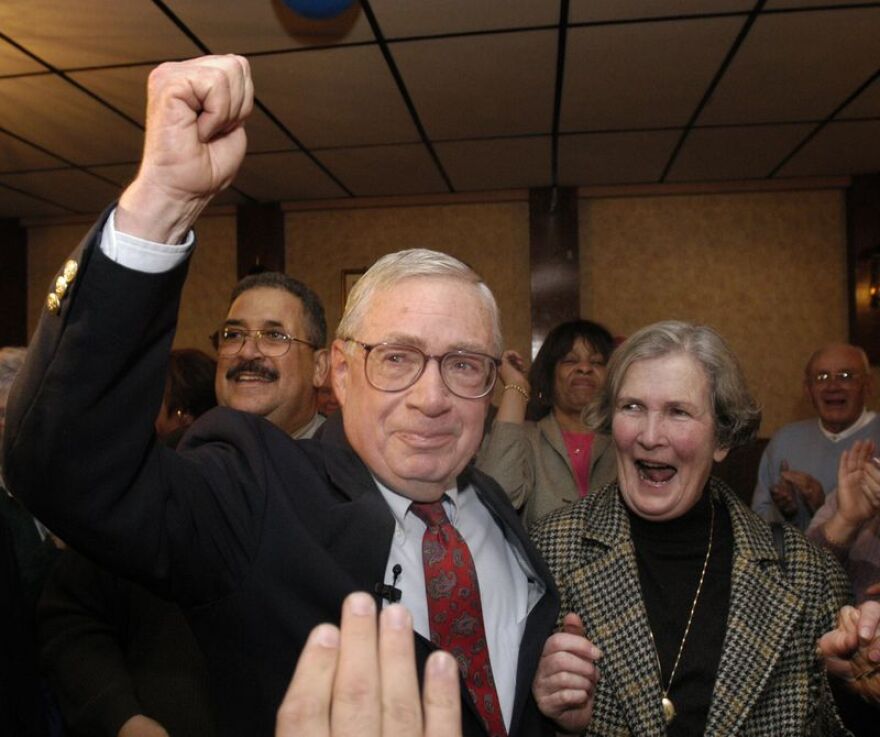Charlie Ryan has died. He served as mayor of Springfield, Massachusetts, during two distinct eras in the city’s history about 40 years apart.
Ryan, a Democrat, was first mayor during a controversial period from 1962 to 1967, when he was considered politically conservative. He was heavily criticized in Springfield’s African American community for calling on the National Guard in 1965 to patrol a peaceful civil rights protest downtown.
Ryan became mayor again years later, in 2004, when he was in his 70s. He was elected to office following the tenure of Michael Albano, who chose not to run again. Springfield was facing serious fiscal problems and state receivership was an open possibility.
“When I was mayor in the ’60s, the city was first-class,” Ryan told CommonWealth magazine right before the election. “We had a tax situation that was under control, our city employees were getting reasonable raises, our infrastructure was in A-number-one shape, we had money in the bank, we had significant surpluses every year, and we were one of the leading cities in New England.”
Ryan went on to oversee a challenging period that began with a $52 million emergency loan approved by the state Legislature for Springfield. That loan came along with the creation of a finance control board with membership appointed by Republican Governor Mitt Romney. The board took some power and decisions away from the mayor and city council for the five years it was in place — essentially Ryan’s entire second stint as mayor, which ended in early 2008.
Ryan ran for re-election a final time in 2007 — a race he'd lose to then-City Councilor Domenic Sarno. During a campaign kickoff speech, Ryan underscored the attempt he had made to work side by side with state officials whose work had very much seemed to replace that of the elected officials and their appointees.
“We are not the first control board city. They happen every now and then, when a city loses its way,” Ryan said in April 2007. “When that happens, that the control board is sent in to do a job, and those that are left in the city government decide to fight with them — I knew that was an expensive luxury that would be absolutely foolhardy to indulge in, because if all we were going to do is have acrimony, and chaos, and finger-pointing, between the five people who were supposed, under the legislative act, to straighten out the city, we would have had paralysis. I knew that we had one chance, and one chance only, to get out of the pit, and that was really by acting together.”
MassLive reports Ryan died Monday after a brief illness, at 94 years of age.





